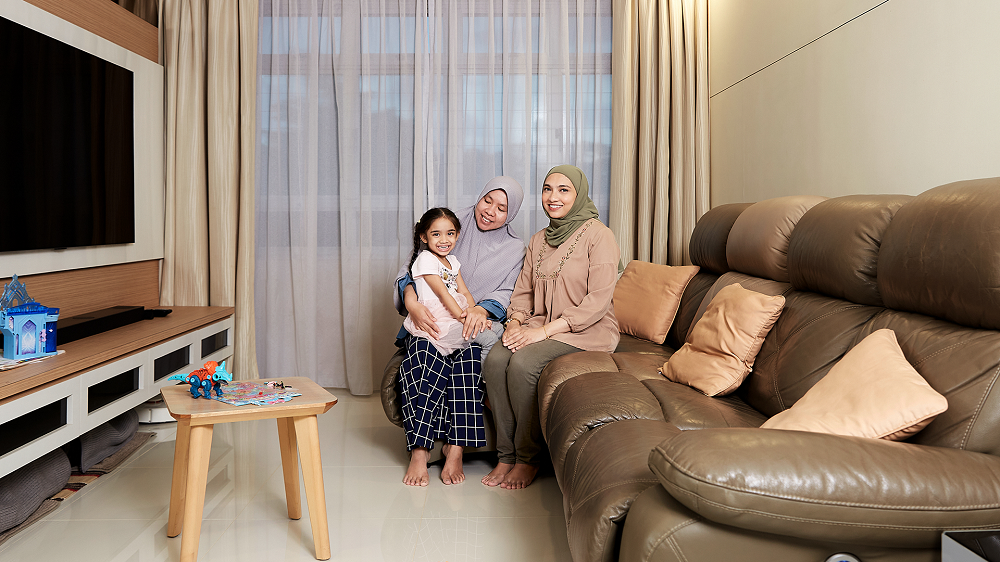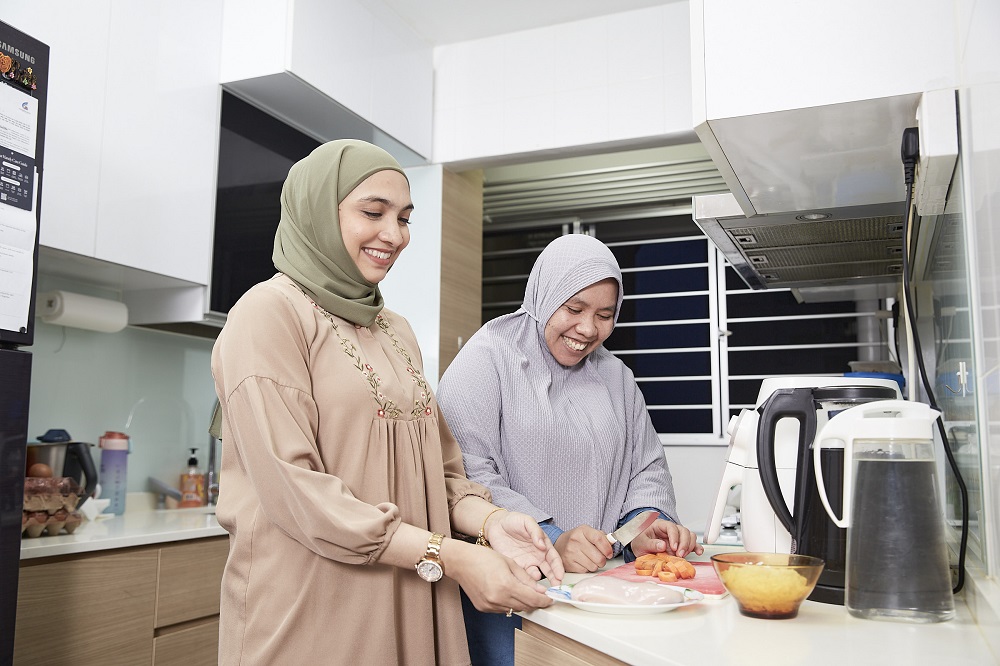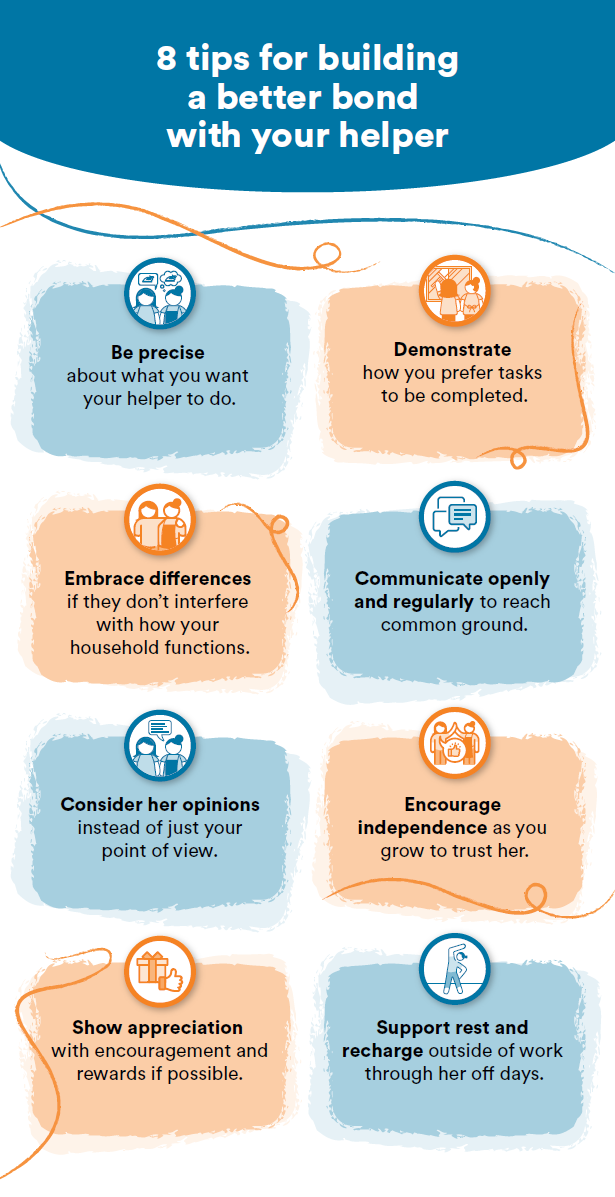Reading time: 5 mins

Rasyidah (rightmost), her MDW Novita and her daughter.
For many busy Singaporeans, hiring a migrant domestic worker (MDW) can significantly lighten their load when it comes to household chores, allowing them to focus on other tasks. However, this also brings the need to introduce someone new to their households.
The good news is that MDW employers have the power to create a positive relationship. We spoke to an employer and her MDW to find out how trust, respect, and open communication can foster a truly enriching bond.
New home, new beginnings
Civil servant Rasyidah Binte Abdul Manaf was pregnant and needed help to run her household. She was delighted to discover Novita Sari Mad Dahri, a helper with whom she felt an instant connection. By a stroke of luck, Novita felt immediately comfortable with Rasyidah too.
Unspoken anxiety
Despite the great start, Rasyidah and Novita’s first weeks had their challenges. “I cried a lot for the first two months,” Novita admitted. Although she had experience working overseas, living apart from her family was taking its toll. There were also differences in expectations over household tasks. “Novita was still learning the ropes,” Rasyidah explained. “But I already had my own expectations in place. For example, I’m very particular about hygiene.“
To complicate things, both preferred keeping things to themselves. For instance, Novita once developed a severe toothache that led to a swollen jaw. She chose to keep quiet about it. Fortunately, Rasyidah noticed that Novita was in pain, and rushed her helper to the dentist.
Communicating with patience and clarity
Rasyidah emphasised giving Novita time to adapt. “People think that helpers will be able to adjust within six months. But in my view, they will need at least one to two years,” Rasyidah remarked.
Setting clear expectations was also key. Instead of assuming that Novita would pick up the expected ways of working by herself, Rasyidah personally demonstrated the processes she preferred for housework.
Feel well, work well
Rasyidah also conducted regular check-ins, not just regarding work but also when she sensed that Novita was feeling down, encouraging Novita to ask questions and share her thoughts.
To further enhance Novita’s mental well-being, Rasyidah encouraged her to contact her family over the phone.
Novita grew to approach Rasyidah regarding issues big and small. “Ma’am (Rasyidah) always has a solution for me,” Novita remarked. As for Rasyidah, she has grown to trust her helper’s ideas for things like home decoration and more.
Opening up pays off
These choices led to a remarkable rapport. The pair quickly adapted to each other. For instance, Rasyidah was not fond of voicing disapproval, so Novita learnt to read Rasyidah’s body language. “When I’m not satisfied, it shows on my face,” Rasyidah remarked. This would prompt Novita to check if everything is fine.

Rasyidah helping Novita with making her special allergy-friendly chicken nuggets.
As for Novita, she proved willing to go above and beyond for the household. Rasyidah’s daughter has multiple food allergies. Yet instead of simply excluding certain ingredients, Novita created new recipes like her special chicken nuggets, so that the child could indulge in foods popular with other children.
A bond that makes you smile
Today, Novita's cheerful presence brightens the household, offering support not just through work but also with words of encouragement. This dedication makes Rasyidah feel secure, knowing she can trust Novita to be by her side.
The two have become like old friends. “I consider Ma’am my family and we understand each other. Now, instead of Ma’am teaching me to do housework, I must teach Ma’am,” Novita joked. Rasyidah agreed: “I’m very thankful. Today, Novita has blended in so well that we work like a unit. She can predict what I need, whether it’s packing my luggage exactly, or making a diet plan that works around my children’s allergies or husband’s preferences.”

Rasyidah's and Novita's journey provides valuable lessons for all of us. Through open communication, setting clear expectations, and showing genuine concern, MDWs and their employers can build a relationship of mutual trust, to a level beyond that of a typical employer and employee.